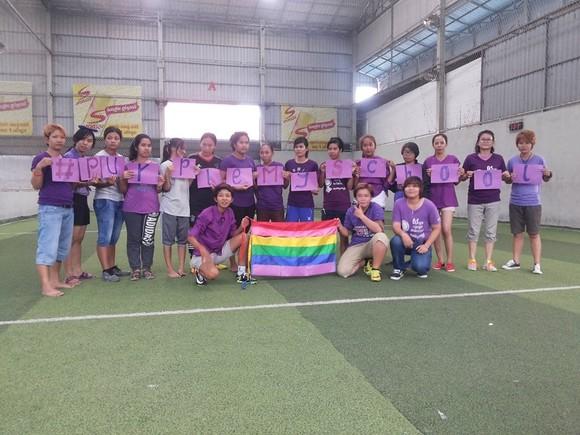
Ah Hea Touch, a grade 11 transman student, dreads English class because he knows his teacher will single him out for abuse, telling him that being transgender is shameful and sinful. Hurt feelings combine with frustration as this isn’t his first encounter with such scorn from an authority figure – Ah Hea Touch had to leave his previous school after being bullied by the principal.
He is one of tens of thousands of LGBTI (lesbian, gay, bisexual, transgender and intersex) students in the Asia-Pacific region who are subject to abuse by the very people whose duty it is to protect their right to a safe education. This is part of a wider problem of bullying on the basis of sexual orientation and gender identity or expression (SOGIE) that is rampant in Asia-Pacific schools, a form of school-related gender based violence.
UNESCO’s recently released regional report on SOGIE-based bullying cites a Cambodia study in which 52% of the lesbian, gay and male-to-female transgender people surveyed said they faced discrimination in school.
CamASEAN Youth’s Future (CamASEAN), an organization promoting minority rights, including those of LGBTI, saw the statistics and the situation facing learners and took action, inspired in part by #PurpleMySchool, a social media advocacy initiative launched by UNESCO, UNDP and Being LGBTI in Asia that aimed to create safer schools for LGBTI students in Asia-Pacific.
While the #PurpleMySchool campaign ended on International Human Rights Day in December, CamASEAN seized on the spirit of the campaign and took its message (and its color) forward at the community level, with advocacy events, including multiple call-in radio and television segments, and even football matches.
The latter competitions featured squads comprising players representing a multitude of sexual orientations and gender identities and were complemented by discussions on human rights, SOGIE and the purpose of the #PurpleMySchool campaign.
The football matches were an ideal way to draw community’s interest, with nearly 900 participants, including school principals, villagers, local authorities, LGBTI community members and straight allies showing up to watch and play in the games.
CamASEAN knew that along with these community initiatives, it was also crucial for them to address the issue within schools, particularly at the teacher level – a Cambodian Center for Human Rights (CCHR) report released last year found that more than a sixth of those reporting bullying on the basis of SOGIE said the abuse came from teachers.
Kong Yara, Executive Director of CamASEAN, says that this is fueled in part by a lack of teacher training on LGBTI and SOGIE issues, a void his organization is working to address. With support from UNESCO Cambodia and strong backing from the Ministry of Education, Youth, and Sport and the Ministry of Information, CamASEAN began conducting LGBTI sensitivity trainings with teachers late last year.
Some of the sentiments expressed during training make it clear to Kong Yara just how important these sessions are in Cambodia.
“The same questions kept being brought up, such as, ‘If we support LGBTI what will happen to Cambodia’s development?’ or ‘If we support LGBTI, is it in line with Cambodian culture?’” he said. “Some teachers point to homosexuality as being a result of Western influence, or an ideological influence brought from Thailand. Others point to hormones in the food as a reason for the ‘rise’ in the LGBTI population.”
CamASEAN’s response is to try to get the teachers to examine their own preconceptions. “We ask questions like, ‘If all of you also eat chicken that has hormones, wouldn’t you all become LGBTI then? These questions spark discussions and allow them to safely explore the topic without judgement being passed,” says Kong Yara.
To date, CamASEAN has trained more than 3,000 teachers in Cambodia.
Kong Yara says that for many of the teachers, these are difficult conversations to have and these sessions are often the first time they have been exposed to these topics. Recognizing that teachers require ongoing support, the organization has set up a Facebook Page and a Facebook Group that the teachers can use as an information resource as well as to connect with each other and the SOGIE trainers.
CamASEAN aims to train more than 4,000 teachers in the next few months, and the organization is already working on an online documentary about their #PurpleMySchool activities.
Grassroots efforts such as those of CamASEAN bring facts into discussions too often rooted in uninformed prejudices and in doing so bring Ah Hea Touch and others like him one step closer to education where the focus is where it should be – on learning.
Source: UNESCO Bangkok
